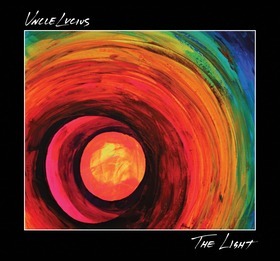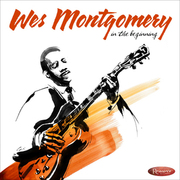New York, NY (Top40 Charts) Most bands celebrate a long-awaited record deal. Uncle Lucius saved the champagne for when they got out of theirs.
"We had a party in the motel parking lot," drummer Josh Greco remembers with a smile. Over some warm Lone Star, the road-weary band bid farewell to Nashville machinations, though the way ahead was entirely uncharted. Only the perils of independence were apparent.
"We really didn't have a back-up plan. Or any plan at all, for that matter," admits Jonny "Keys" Grossman.
Fortunately, this band has plenty of practice straying from the simpler path. For a decade, Uncle Lucius had built its fan base the hard way, through relentless touring and restless searching. With no other option, they called on their die-hards for help. Hundreds of believers pledged tens of thousands of hard-earned dollars. Both humbled and exhilarated, the band hit the studio, eager to justify their fans' love with the labor of their hearts and souls.
The resulting LP, The Light, out June 9, 2015 on Boo Clap/Thirty Tigers, is the statement their fans have waited for, with its songs of seeking and questioning, of reaching out to others, of excavating the hidden strength within. After years spent spreading their message across Texas, here at last is the vehicle that can take them to the national level.
Opening the album, the title track begins deceptively, with singer
Kevin Galloway alone in a playful groove, until the band crashes in like a hammer, turning a folky shuffle into a barrelhouse stomper. Amidst the propulsive rhythm, Galloway sings of "Going through the motions/without knowing why; Faking our emotions/trying hard not to try." At its heart his message is self-determination, escaping the traps of learned behaviors, or studied reactions, in favor of reawakening the power within us. Obscured though it may be, there remains a light within all of us, just waiting to be rediscovered.
"Age of Reason," written by founding bassist Hal Vorpahl, conceals a call to arms within the Stax Records-influenced vibe. "We're just scared of what we don't know," Galloway sings, and part of pride is resistance and resentment in the face of change. "It's a call to let go of limitations," said Galloway, and among these barriers are religion, tradition, and tribe, for no matter their power in shaping us, "where we come from will never mean as much as where we've been."
As the track quiets to a dissonant murmur, Galloway offers his sternest indictment: "We claim to serve divinity, yet we exploit those who believe." The band caterwauls back into place, grinding and pulsating like a well-oiled machine. Who knew righteous indignation could sound so funky?
Probing painful truths should come as no surprise to long-time UL fans. From their debut effort, Something They Ain't, Uncle Lucius has specialized in unvarnished reflections, whether in the thought-provoking "
Million Ways" or the captivating "Keep the Wolves Away," which propelled their outsider's angle into the mainstream of
Texas radio in 2013.
Much about UL sets them apart. Five songwriters combining forces is neither common nor easy, but what each individual loses in pride the band more than gains in power. The song itself matters more than who wrote it, more than the genre to which it belongs. "It's not about trying to write a certain kind of song," says Galloway, "it's about harvesting whatever song comes."
Despite that organic method, The Light's 12 songs share themes of travel, movement, and quests without destinations. Guitarist Mike Carpenter turned images of a two-lane highway in West Texas's Big Bend into a kind of prayer: "At the end of 118, that's where I wanna be/Me and you, far from the city beat." His "Wheel's in Motion" explores those situations when we concede control over our own actions, when we hide our powers of reason behind the blinders of duty and responsibility. That thread continues in "Don't Own the Right," co-written by Galloway and Carpenter, which reminds us not to judge others.
Galloway's "Taking in the View" sprawls like a Western epic with the devil "wondering where the hell have all the real souls gone?" while Jesus "just left Chicago" — in a
ZZ Top homage — on a cross-country journey. Settling on a quiet retirement in Appalachia, he sifts through "a stack of classic vinyl," while the band, joined by The Mastersons' Eleanor Whitmore on strings, crescendos into a mad cacophony right out of the Book of Revelation. The song is a prime example of what Uncle Lucius does best, couching thought-provoking topics in grabby tunes that allow for both casual listening and deeper contemplation.
The Light places the band in unfamiliar sonic territory, and much credit belongs to producer
George Reiff (Shinyribs, Ray Wylie Hubbard, the Band of Heathens) for testing their limits. "Flood Then Fade Away," with its propulsive tom-tom groove, and its waves of crystalline synths, is unlike any song in the band's catalog, yet retains that elusive UL signature. "Ouroboros," meanwhile, could fit in on a hip-hop album, both for its robotic pulse and its combative lyrics.
Grossman admits that, in writing "Ouroboros," he sought to speak in Galloway's artistic voice: "Kevin has a penchant for grand, uplifting tunes with the capacity to inspire." Every member influences every other, and that combined filter comes close to defining what Uncle Lucius is. "We're a five-headed beast," Galloway insists, "and our songs speak for us. Whether we succeed depends on how well they resonate in the world."
A band Carpenter calls "Southern rock for the thinking man" doesn't shy away from outside-the-box influences. Galloway quotes philosopher Jiddu Krishnamurti and mythologist Joseph Campbell in the same breath as Willie Nelson, while Greco evokes The Band and bebop drummer Max Roach with equal aplomb. Each member recognizes that authenticity requires a constant seeking, that at no time may an artist arrive at who they truly are. Instead they must look always beyond their present confines, in order to remain unsettled enough to create.
Certainly there's risk involved when a band decides to go its own way. Freedom carries with it the weight of responsibility after all. That Uncle Lucius seems destined for a broader audience should come as no surprise, for music that comes from the heart and speaks to the soul.
























